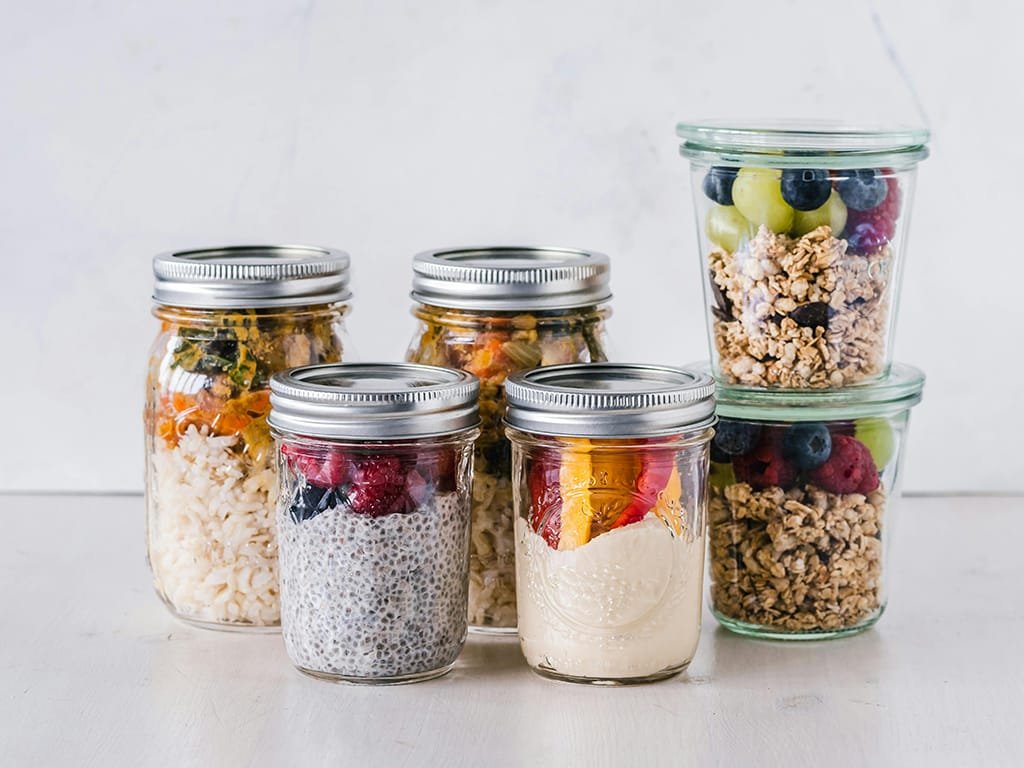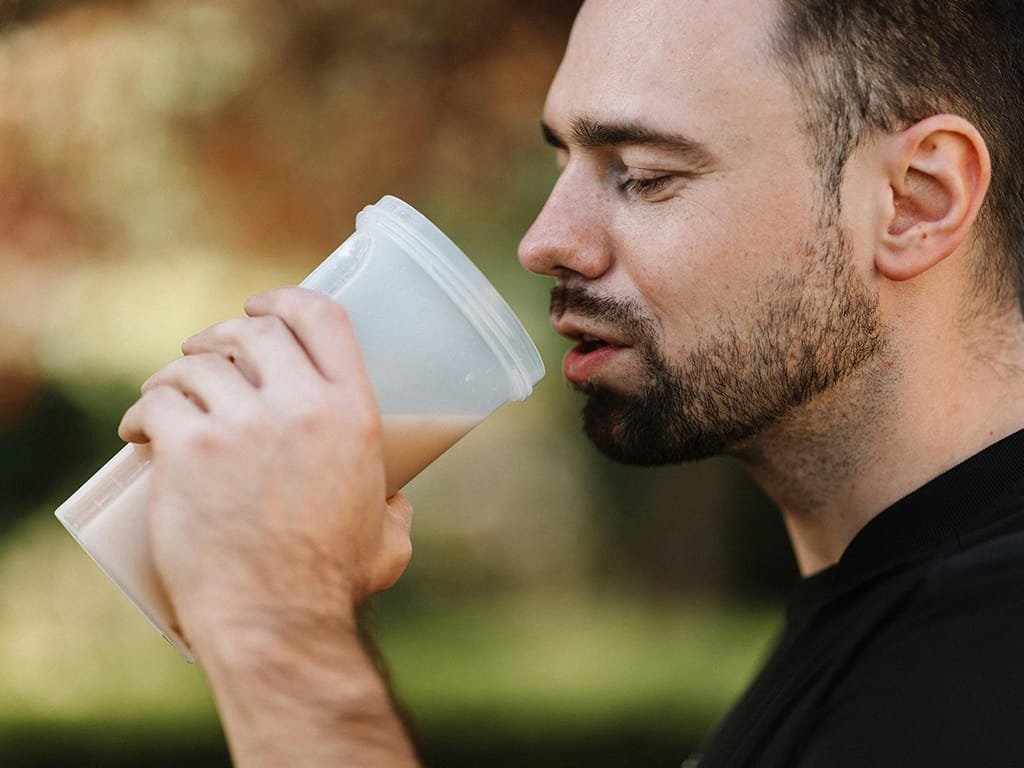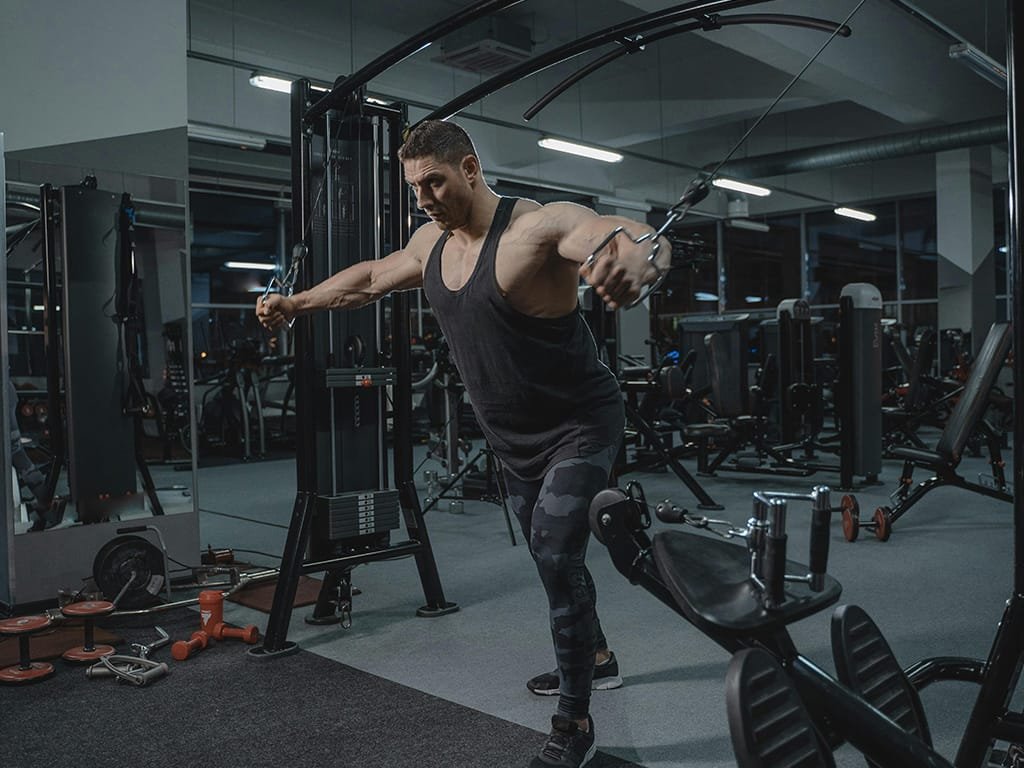The Best Fluffy Pancakes recipe you will fall in love with. Full of tips and tricks to help you make the best pancakes.
Essential Muscle Health Vitamins and Supplements for Muscle Growth, Vitamin and Mineral, Vitamins for Muscle
To build strong, healthy muscles, you need more than workouts. You also need to fuel your body right for performance and recovery. Certain vitamins and minerals are key for muscle growth, repair, and performance. Did you know that? These nutrients support protein synthesis and reduce inflammation. They are the unsung heroes of your fitness journey.
Table of Contents
ToggleThis blog will look at the key vitamins and supplements for healthy muscles and growth. You’ll discover how these nutrients function in your body. You’ll also find the best sources to add to your diet. Plus, learn when supplements can help you gain an advantage. If you’re an athlete or a fitness fan, knowing about vitamins and minerals is key. This knowledge can help you boost your muscle health and reach your goals. Ready to uncover the secrets to stronger, healthier muscles? Let’s dive in!

- Discover the essential ‘vitamins for muscle growth.
- Understand how vitamins support muscle restoration.
- Learn about key minerals that contribute to muscle health.
- Explore the role of amino acids in muscle development.
- Get tips on choosing the right supplements for your fitness goals.
- Identify dietary sources rich in muscle health vitamins.
- Timing your intake for maximum muscle-building benefits.
Understanding the Importance of Muscle Health Vitamins
Vitamins are key to keeping muscles healthy. They help with energy production and metabolic processes. This is vital for muscles to work well. Vitamin D and B-complex vitamins are important for muscle strength and recovery.
Not getting enough vitamins can lead to muscle weakness and fatigue. It also makes recovery after workouts longer. Knowing the benefits of vitamins helps you choose better foods for your muscles.
Adding essential vitamins to your diet can boost your performance and muscle function. A balanced diet with these nutrients is essential for muscle health. By focusing on vitamins, you can improve your workouts and overall health.
Key B Vitamins for Optimal Muscle Growth
Knowing the right ‘vitamins for muscle’ growth is key. These nutrients boost your health and help with exercise. Vitamins like D, C, vitamin b12, and E are essential for your fitness goals.
Vitamin D and Muscle Health
Vitamin D is great for muscle health. It helps your body absorb ‘calcium’, which is important for muscle movement. It also helps repair muscles.
Not having enough vitamin D can hurt your muscle strength. This can stop you from reaching your athletic goals.
Vitamin C: Crucial for Recovery
Vitamin C is important for muscle restoration. It helps make collagen, which is key for healing muscles after working out. Taking vitamin C can help you recover faster and feel less sore.
The Role of Vitamin E in Muscle Function
Vitamin E fights oxidative stress during workouts. It keeps your muscles working well and helps them recover. Vitamin E keeps your cells healthy, improving your performance.
Minerals Essential for Muscle Mass
Minerals are key for building and keeping muscle mass. Knowing their importance can boost your physical performance and muscle health. ‘Calcium’ and ‘magnesium’ are two important minerals that help muscles work well.
Calcium: The Building Block of Bones and Muscles
‘Calcium’ does more than just strengthen bones. It’s also vital for muscle contractions’ during exercise. Your body needs enough ‘calcium’ to perform well. You can get more ‘calcium’ from dairy, leafy greens, and fortified foods.
Magnesium: Supporting Muscle Contraction
‘Magnesium’ is also essential for muscle health. It helps muscles relax and makes energy, which boosts performance and recovery. It also prevents muscle cramps and helps grow muscles. You can find ‘magnesium’ in nuts, seeds, whole grains, and spinach.
| Mineral | Primary Functions | Food Sources |
|---|---|---|
| Calcium | Supports muscle contraction, strengthens bones | Dairy, leafy greens, fortified foods |
| Magnesium | Facilitates muscle relaxation, energy production | Nuts, seeds, whole grains, spinach |
Amino Acids: The Foundation of Muscle Recovery
‘Amino acids’ are key for ‘muscle recovery’ as they build proteins. Understanding essential and non-essential amino acids is key to muscle health. Essential ‘amino acids need to come from your diet, while your body can make non-essential ones. Both are important. Essential amino acids help with muscle repair after exercise.
Essential vs. Non-Essential Amino Acids
Essential ‘amino acids’ are critical for fixing and growing muscle tissue. They include:
- Leucine
- Isoleucine
- Valine
- Lysine
- Threonine
- Phenylalanine
- Tryptophan
- Methionine
You need to eat foods rich in these ‘amino acids’ every day. Good sources are meat, dairy, and legumes. Non-essential ‘amino acids’, like glutamine and alanine, can also help with muscle restoration. They aid in ‘muscle repair’ and reduce tiredness.
Branched-Chain ‘Amino Acids’ for Performance
Branched-chain ‘amino acids’ (BCAAs) are leucine, isoleucine, and valine. They are key for muscle performance and recovery. Studies show BCAAs can lessen delayed onset muscle soreness prevent it after hard workouts and reduce muscle damage. Adding BCAAs to your supplements can help you recover faster, so you can do better in your next workout.
| Amino Acid Type | Source | Benefit |
|---|---|---|
| Essential Amino Acids | Meat, Dairy, Eggs, Legumes | Necessary for muscle repair and growth |
| Non-Essential Amino Acids | Beef, Chicken, Fish, Soy | Supports recovery, fatigue reduction |
| Branched-Chain Amino Acids | Whey Protein, Eggs, Supplements | Reduces muscle soreness, enhances recovery |
Getting the right mix of ‘amino acids’, like essential and branched-chain ones, can really help your muscle restoration. Knowing their importance helps you make better food choices for better muscle health.

Choosing the Right Supplements for Muscle Health
Choosing the right muscle health ‘supplements is key to your fitness journey. It’s important to know the different types and how to pick the best ones for you. This guide helps you learn about muscle health supplements. It also shows you how to read labels for safety and clarity.
Types of Muscle Health Supplements
The market has many muscle health supplements for different needs. Here are some common ones:
- Multivitamins: Give a general boost of vitamins and minerals.
- Protein Powders: Help meet daily protein needs for muscle restoration and growth.
- ‘Amino Acids’: Targeted for ‘muscle repair’ and performance.
- Creatine: Boosts strength and power in intense workouts.
- Omega-3 Fatty Acids: Supports overall national institutes of health and reduces inflammation.
How to Read Supplement Labels
Reading supplement labels is key to making good choices. Here’s what to look for:
- Ingredient List: Check for beneficial ingredients and avoid fillers.
- Serving Size: Know the recommended serving size to manage intake.
- Dosages: Make sure the dosages are effective for your needs.
- Certifications: Look for quality assurance seals for safety and testing.
| Supplement Type | Primary Benefit | Common Ingredients |
|---|---|---|
| Multivitamins | Overall health support | Vitamins A, C, D, E, and B-complex |
| Protein Powders | Muscle restoration and growth | Whey, Casein, Soy protein |
| ‘Amino Acids’ | Muscle repair and performance | Leucine, Isoleucine, Valine |
| Creatine | Increased strength and power | Creatine Monohydrate |
| Omega-3 Fatty Acids | Heart health and inflammation reduction | Fish oil, Flaxseed oil |
Dietary Sources of Important Vitamins for Muscle Growth
Eating the right foods is key for muscle growth and health. Focusing on vitamins can boost your muscle development. This section looks at top foods for vitamins D and ‘magnesium’.
Foods Rich in Vitamin D
Vitamin D’s can also is vital for ‘muscle function’ and recovery. To get enough, add these vitamin D3 foods to your diet:
- Fatty fish, such as salmon and mackerel
- Fortified dairy products like milk and yogurt
- Egg yolks
- Mushrooms exposed to UV light
These foods can help your muscles and improve fitness.
Incorporating Magnesium-Rich Foods into Your Diet
Helps with muscle contraction and recovery. Great ‘magnesium sources’ include:
- Leafy greens such as spinach and kale
- Nuts like almonds and cashews
- Whole grains, including brown rice and quinoa
- Legumes such as black beans and chickpeas
Adding these foods to your meals can boost ‘muscle function’ and recovery.
Understanding the Role of Dietary Supplements
Dietary supplements are key for filling gaps in our diets, which is important for active people and athletes. Many of us can’t get all the nutrients we need from food alone. That’s where ‘supplements’ come in, helping to boost performance, aid in recovery, and keep our bodies healthy.
It’s important to understand how ‘supplements’ can benefit our nutrition. They offer a steady supply of nutrients, even when our diets are limited. If you often feel tired or take a long time to recover from exercise, checking your ‘supplement’ use might help.
Deciding if you need ‘supplements’ depends on your diet and lifestyle. For instance, if your diet is missing important vitamins or minerals, ‘supplements could be a good choice. Always talk to a healthcare expert to find the right ‘supplements for you. This way, you can make sure you’re getting the most out of them.
- Enhance athletic performance
- Supporting muscle recovery
- Fill nutrient deficiencies
- Boost overall physical health
Timing Your Vitamin and Supplement Intake
Knowing when to take your vitamins and ‘supplements can really help. It boosts your energy and helps you recover better. By using the right timing for pre-workout and post-workout, you keep your muscles healthy.
Pre-Workout and Post-Workout Considerations
Using vitamins before your workout gets your body ready. Vitamins like B and C increase energy and focus. After working out, vitamins like D and ‘magnesium’ help repair muscles.
Daily vs. Weekly Supplement Schedules
Having a set schedule for your ‘supplements’ helps keep things consistent. You can take them every day or in bigger doses once a week. It’s important to choose what works best for you and your life.
Combining Vitamins for Enhanced Muscle Health
For better muscle health, it’s key to use vitamins and minerals together. Knowing how they work together helps improve your performance and recovery. A smart mix of vitamins is the base for growing strong muscles and staying healthy.
The Synergy of Vitamins and Minerals
Each vitamin and mineral has its own job in muscle health. When mixed right, they boost each other’s effects. For instance:
- Vitamin D helps your body use calcium better, which is key for muscle movement.
- Vitamin C helps fix damaged tissues, helping your muscles heal.
- Magnesium works with calcium to make muscles work right and prevent cramps.
These vitamins and minerals help with muscle growth and healing. Adding them to your diet makes your body stronger and more resilient.
Creating a Balanced Supplement Plan
Creating a good supplement plan means looking at your diet and fitness goals. Here’s how to make yours:
- Check your diet to see if you’re missing any nutrients.
- Pick supplements with a mix of vitamins and minerals that work well together.
- Watch how your body reacts and adjust the amounts if needed.
- Talk to a health expert to make sure your plan fits your health.
A good supplement plan with vitamins can help your muscles work better and keep you healthy. Think about how different nutrients support each other. They can help you achieve better results and stay excited about your fitness goals.
| Vitamin/Mineral | Role in Muscle Health | Best Sources |
|---|---|---|
| Vitamin D | Enhances calcium absorption | Sunlight, fortified milk, fatty fish |
| Vitamin C | Promotes tissue repair | Citrus fruits, strawberries, bell peppers |
| Magnesium | Supports muscle contractions’ | Nuts, whole grains, leafy greens |
| Calcium | Essential for muscle contraction | Dairy products, almonds, tofu |
The Connection Between Bone and Muscle Health
Bones and muscles work together for our body’s health. Strong bones help muscles work better. This team effort is key for moving, staying balanced, and being mobile.
Not having enough ‘calcium’ and ‘magnesium’ can hurt both bones and muscles. These minerals help bones grow strong and muscles work well. So, if you want strong muscles, don’t forget about your bones.
- Optimal bone density supports ‘muscle function’.
- The muscle and bone connection influences balance and coordination.
- Mineral intake affects both muscle strength and bone density.
Doing exercises that make both muscles and bones stronger is good. Activities like weight training and exercises that make you stand on your feet help. They make muscles stronger and bones healthier, which is important for staying injury-free and moving well as you get older.
| Factor | Impact on Bone Health | Impact on Muscle Health |
|---|---|---|
| Calcium | Essential for bone density | Aids muscle contraction |
| Magnesium | Supports bone structure | Facilitates ‘muscle recovery’ |
| Vitamin D | Enhances calcium absorption | Improves ‘muscle function’ |
The Effects of Hydration on Muscle Growth
Hydration is key for muscle health and better performance. Drinking enough water helps move nutrients to your muscles, helping them grow. Without enough water, your body can’t work well, making it hard to recover and grow muscles.
Water is important during hard workouts. It helps keep your body cool and joints lubricated, preventing injuries. Dehydration can cause muscle cramps and tiredness, making it hard to train and recover. Drinking enough water helps you stay strong and perform better during workouts.
Studies show that hydration helps muscles grow. When you’re hydrated, your muscles take in nutrients better, aiding in recovery. This helps fix and grow muscle fibers, increasing muscle mass. To get the most from hydration and muscle growth, drink enough water before, during, and after workouts.
Make a plan for staying hydrated that fits your workout schedule. Track how much water you drink and adjust as needed. Staying hydrated can boost muscle growth and improve sports performance.

Conclusion
Understanding the role of essential muscle health vitamins and minerals is key. Vitamins like D, C, and E, and minerals like ‘calcium and magnesium’, help muscles work better and prevent injuries. Eating a variety of foods and using ‘supplements’ can improve your muscle health.
‘Supplements’ are very important. They help fill in nutritional gaps and support muscle growth. Checking your diet and making changes can help you reach your fitness goals.
Remember, a balanced diet with the right vitamins and minerals is essential. This sets a strong foundation for long-term muscle health and overall wellness.
FAQ
What are the essential vitamins for muscle growth?
Vitamins like Vitamin D help with ‘calcium’ absorption. Vitamin C is key for ‘muscle recovery’. Vitamin E reduces oxidative stress, supporting ‘muscle function’.
How do minerals contribute to muscle mass?
Minerals like ‘calcium’ and magnesium are essential. ‘Calcium strengthens’ bones and helps muscles contract. Magnesium aids in muscle relaxation and energy production, vital for performance and recovery.
What role do amino acids play in ‘muscle recovery’?
‘Amino acids’ are the building blocks of proteins. They’re vital for ‘muscle repair’ and recovery. Essential ‘amino acids’ must come from diet. Branched-chain ‘amino acids’ (BCAAs) reduce muscle soreness and boost growth after intense exercise.
What dietary supplements should I consider for muscle health?
Look for ‘supplements’ with a mix of vitamins and minerals. Options include multivitamins, muscle protein supplements powders, and BCAAs. Choose based on your specific needs for muscle growth and recovery.
When is the best time to take vitamins and supplements?
Take vitamins and ‘supplements’ before and after working out. Pre-workout boosts energy, while post-workout aids in recovery. Tailor your schedule to fit your routine.
What foods are rich in Vitamin D and beneficial for muscle health?
Foods high in Vitamin D include fatty fish like salmon, fortified dairy, and egg yolks. Adding these to your diet helps with ‘calcium’ absorption and muscle health.
How does hydration impact muscle growth?
Hydration is key for muscle growth. It helps transport nutrients and aids in recovery. Drinking enough water reduces fatigue and boosts performance, essential for muscle health.
What is the connection between bone health and muscle health?
Bone and muscle health are closely linked. Strong bones support ‘muscle function’. Adequate mineral intake is vital for both, making it important to focus on both for overall well-being.
How can I create a balanced ‘supplement’ plan for muscle health?
For a balanced plan, mix vitamins and minerals that work together for muscle health. Tailor your plan to your fitness goals, diet, and any deficiencies you’ve found.



